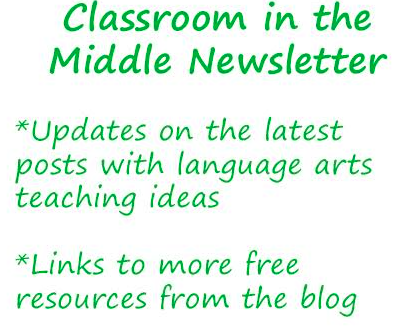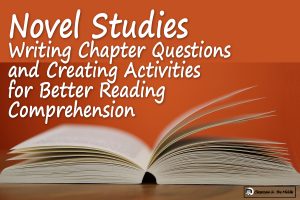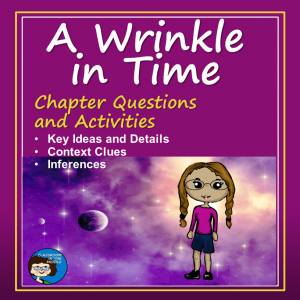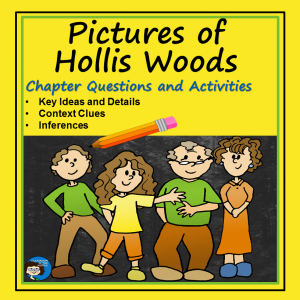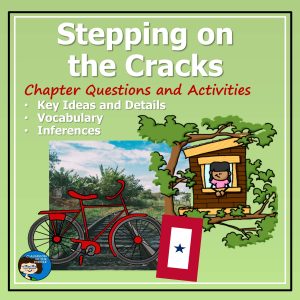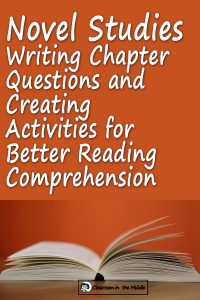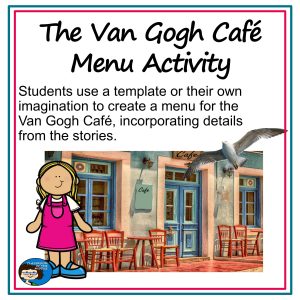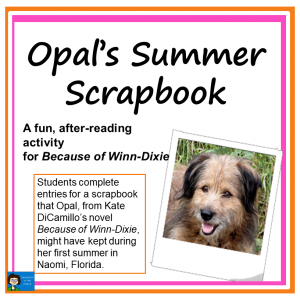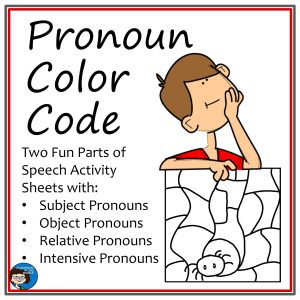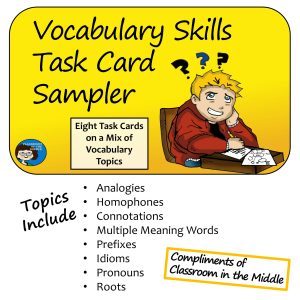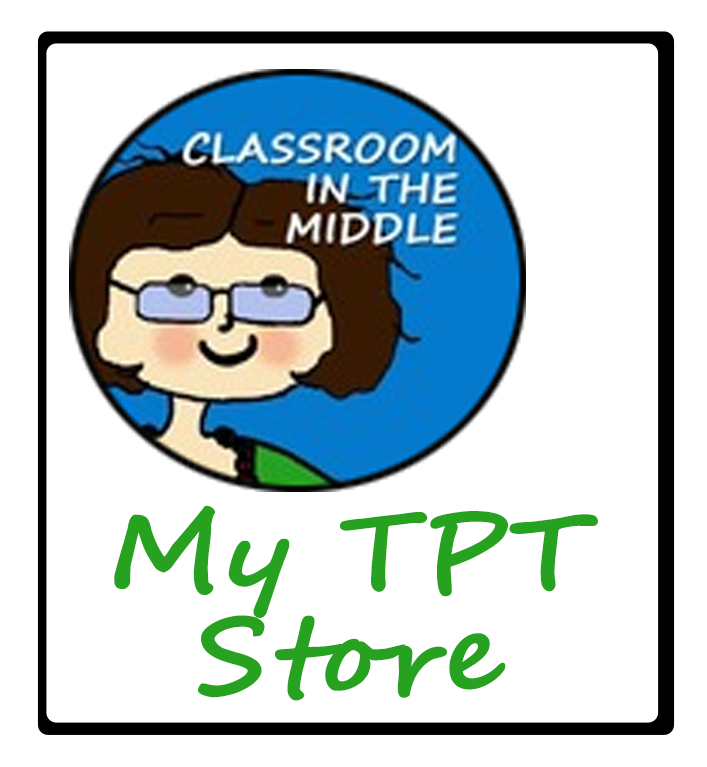What do you do when you want to choose a new novel for a novel study but don’t have a ready-made novel study to use? You’ll probably want chapter questions to keep your young readers on track, plus additional activities – probably some to use before, during, and after reading – because along with appreciating the novel, you’ll also want your kids to keep boosting their reading comprehension skills.
That’s a lot of materials to create, so take the time to put together a novel study that will be something you can use in future years as well.
Then, of course, there’s the matter of which skills to include. Common Core goals of course, but you’ll probably have a few other things in mind that you just know your kids need to work on. Some things you can plan on using year after year, but other activities might get just occasional use or might be useful just for certain groups. Even if you write an activity with one specific group of kids in mind, keep it with your novel study because you never know when you might need it again!
Here is what I like to include in my novel studies:
Before-Reading Activity
This is a little something to get the kids interested before they begin Chapter One. It might include making predictions from the cover illustration and the blurb on the back of the book, or maybe predicting from the chapter titles. Another activity that I like to use is looking into the time period or historical event that is the setting for a historical novel, the technology related to a a science-based story, or a current issue that is also addressed in the novel.
Chapter Questions
Sometimes I write a set of questions for each chapter; sometimes I combine a few chapters for each set of questions. It all depends on two things: how long you want to spend on this novel study, and how much text your kids can comfortable work with at one time.
I always start with some “factual” questions, meaning details straight from the story (even though they are, of course, actually fiction). Think about which details your kids will need to take note of in order to keep up with the action of the novel.
Story elements are a must for these basic questions. I like to include these:
- Character names
- Character traits
- Details of the setting
- Main events of the plot
- Conflicts – what happened and who was involved
Then, to boost comprehension further, I always include questions that ask students to make inferences or draw conclusions. These thinking questions address additional reading standards and also help students to get more out of each novel that they read.
I also add in just a couple of vocabulary questions. Sometimes it might be story-specific vocabulary that the kids need to understand for comprehension of the story. Other times, I choose a few words just for the purpose of improving the kids vocabulary.
After-Reading Activities
This is where I really focus on the skills. Characterization is one that always seems especially helpful at for middle schoolers and upper elementary kids. This is the time to address theme, too. I might do one whole activity on a single theme of the novel, or maybe an activity where they either choose, or come up with on their own, a number of themes that are addressed.
Whatever skills you choose to work on, after-reading is the time when you can really get into fun, engaging activities. Now that the whole novel has ben read(!), enjoy creating and teaching with unique graphic organizers, whole-class activities, and games to extend the learning.
Novels are such a rich resource for so many reading comprehension skills that the main problem for teachers, as we create our teaching materials, can sometimes be just choosing what to include and what to leave out! Because it is important to keep the story the main thing. Most important, I would say, is for kids to enjoy the book. The rest, I think, will follow.
A Related Article
Of course, teachers don’t have the luxury of teaching with novels all the time. Sometimes, in fact, what is needed is a just nice short passage – just long enough for a one-class lesson. Check out my previous article Finding Reading Comprehension Passages, for some helpful ideas on choosing these short readings.
Novel Studies

